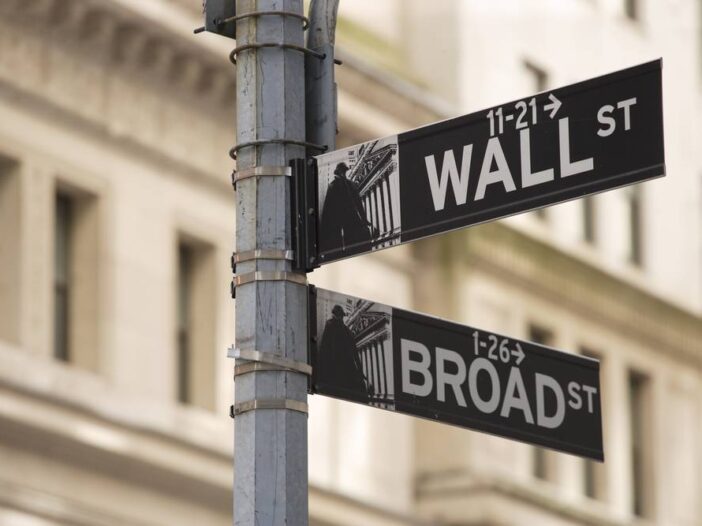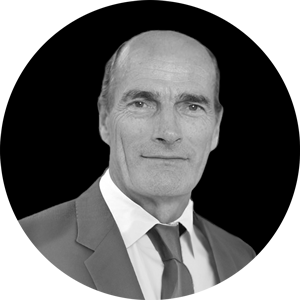‘Nobody wants to do this kind of work anymore.’
Mick, our old-school stonemason, turns 65 this year. He will retire soon.
‘It’s great work. You’re outside all day. And it’s healthy. You get a lot of exercise. But it’s hard, physical work.
‘I’ve been doing it for 50 years. I’ve always enjoyed it. But it takes a toll.
‘And when I retire [my employer] won’t have a mason on the payroll anymore. The kids want to go to Dublin. They all want to work in finance. Or those computer things. They’ve got that area [in Dublin] they call the Silicon Docklands. That’s where all those high-tech firms are. That’s where the kids want to go.’
Here with a few thoughts on where the kids want to go…
Mick was right. The two big moneymakers of the last quarter-century have been Wall Street and Silicon Valley. It’s been a puzzle to us. A real economy is based on give and take. And, generally, the more you give…the more you get.
We get bread from bakers…wheels from the carmakers…nice people in Indonesia prick their fingers so we will have clothes to wear…John Deere made our tractor…the Ford company made our truck…lumberjacks in Canada send us lumber…carpenters build our houses…roughnecks drill for oil…truckers deliver it…clerks sell it.
When we go to a good restaurant, we compliment the chef and tip the waiter. A man came to the house yesterday to check if our in-ground gas tank was leaking; we thanked him. And last night, we opened a bottle of wine from Chile. The harvesters had picked the grapes. The winemaker had bottled it. The captain had brought his ship into Dublin harbour with the wine aboard. And the local SuperValue had stocked it on its shelves for us. All for only $12.
All of these people work hard to make our lives more agreeable. But what do Wall Street and Silicon Valley do?
Face down
Whatever Meta (formally Facebook) does, last week, investors figured it was worth less than they had previously thought. In the space of a few hours, US$250 billion of market cap dissolved. The proximate cause of this big drop was Meta’s quarterly report to investors, in which it revealed that revenues went down. And so did its customers (users). This looked like a top; now it’s clear that even the most successful ‘tech’ firms don’t go up forever.
Meanwhile, it is up, up, and up for Wall Street. Here’s an update from last week. Bloomberg:
‘Ten million dollars, $15 million, $25 million, more: Big money is back on Wall Street.
‘Not since the late 2000s, when lavish bonuses rained down before and after federal bailouts, have pay packages at U.S. investment banks swelled as much as they have right now.
‘Goldman Sachs Group Inc. just finished spending an average of 23% more per employee for the past year — the biggest jump in more than a decade. And that figure is muted compared with how dramatically bonuses have gone up for dealmakers, with Morgan Stanley, JPMorgan Chase & Co. and Goldman raising them to the tune of 30%, 40% and 50%.
‘After years of restraint, bank leaders are once again projecting a “whatever it takes” approach to compensation, vowing they won’t be outbid for top performers, lest they lose an edge in a hot market for trading and deals. That has their employees in Manhattan uncorking $2,000 bottles of wine at the fastest pace in years, buying bigger homes in fashionable TriBeCa, and snapping up yachts.’
There is a minor discipline of economists and historians who try to figure out why societies decline — often catastrophically. Many are the hypotheses — climate change, war, disease, overpopulation, and so forth.
Here is one of them: in every society, some people rule…others are ruled. As time goes by, more and more people want to join the governing class. In our own time, mothers encourage their children to go to college…to wear suits, rather than overalls…and to join the elite.
How to Survive Australia’s Biggest Recession in 90 Years. Download your free report and learn more.
The Sultan’s sedan
The trouble is the ruling classes don’t add much of value. They regulate…they control…they administer…they supervise…they advise. In an honest society, you need some people — an elite — to provide these services. But extra weight in the upper classes is a burden. An unproductive elite is parasitic. It toils not. Neither does it spin. It is toted on the shoulders of the common man, like a Turkish sultan in a sedan chair.
Wall Street is a regulator…a facilitator. Its role is to match businesses and investors up with each other…allocating precious capital to the enterprises that are most likely to fructify it. It is a useful service. But in an honest world, capital is limited. So are the opportunities to use it wisely. And the appetite for risking them in bizarre speculations — on NFTs, cryptos, money losing, zombie companies, meme stocks, options, SPACs, and hugely overpriced ‘tech’ companies — is restrained.
Investors usually make money by buying moneymaking businesses…not by gambling on wacky, weird innovations. So the opportunity for the middlemen — Wall Street — to make money is also limited. That’s why, back in the Land Before Financialisation, in 1982, the finance industry represented about only 10% of corporate profits. It only hit after the US began its decline in 2000.
And now that the big bonuses are back, no wonder the young stonemasons want to put down their trowels.
More dots to be connected — why Meta has topped out…why people on Wall Street are overpaid…and why the US empire is in retreat. Stay tuned.
Regards,
 |
Bill Bonner,
For The Daily Reckoning Australia
PS: Our publication The Daily Reckoning is a fantastic place to start your investment journey. We talk about the big trends driving the most innovative stocks on the ASX. Learn all about it here.

